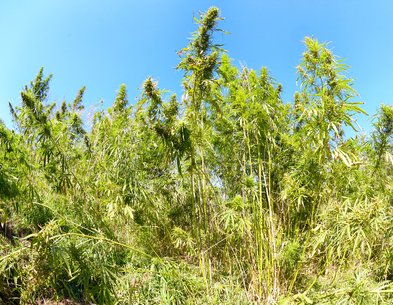
On September 3, 2020, Governor Wolf renewed his call for the legalization of recreational marijuana use for adults in Pennsylvania, which he originally announced his support of in September of 2019. Pointing to a presumed economic windfall such a legislative act would bring to the Commonwealth, he said: “Now more than ever, specially right in the middle of a pandemic, we have a desperate need for the economic boost that the legalization of cannabis could provide.” Lieutenant Governor John Fetterman also highlighted the economic impact to come from legalization. He said he could pitch marijuana legalization as a jobs bill. “Legalizing marijuana would create tens of thousands of jobs that require no subsidy.” This is a complete about-face from Wolf’s position two years ago, when he said, “I don’t think Pennsylvania’s actually ready for recreational marijuana.”
His rejection of legalization from August of 2018 was followed by a statement on Twitter in December of 2018 that signaled an evolving position, where Governor Wolf said more and more states were implementing marijuana legalization and we should keep learning from their efforts. “I think it is time for Pennsylvania to take a serious and honest look at recreational marijuana.” In an article I wrote in January of 2020, “From the Frying Pan Into the Fire with Recreational Marijuana in PA,” I said I hoped PA would learn from the long-term consequences of marijuana legalization in other states. We should not allow the political pressure to legalize marijuana to outpace learning from the consequences to other states and the science from research into marijuana.
Is the pressure to legalize recreational marijuana use in Pennsylvania a consequence of “more and more states successfully implementing marijuana legalization,” as Governor Wolf said in December of 2018? Let’s look at some of the claims that have been made about legalization, especially in Colorado, to see what this supposed successful implementation could mean for Pennsylvania.
In his most recent call for legalization, Governor Wolf said the revenue from legalization would benefit restorative justice programs and historically disadvantaged businesses. Another factor in the proposed legislation is reform to the criminal justice system and the uneven enforcement of marijuana laws against Blacks and Latinos. Fetterman said: “If you go over the span of decades we are talking nearly a quarter of a million Pennsylvanians that now have some affiliation with the criminal justice system for nothing more than consuming a plant that’s actually legal in 12 jurisdictions across this country.” State Senator Sharif Street of Philadelphia, one of the co-sponsors of the “Adult-Use Cannabis Act,” added that marijuana would economically benefit farmers, who could rotate it with corn. He added that regulation would also make it more difficult for dealers to sell to minors.
In addition to these claims made during the September 3rd announcement, there were the results from a May 2019 statewide “listening tour” by John Fetterman to hear people’s opinions as to whether or not they were in favor of or opposed to legalizing adult-use recreational marijuana. The most commonly stated reasons cited in support of legalization included in the Listening Tour Report were: a perceived economic benefit with increase funding for education and infrastructure, the expungement of past non-violent cannabis convictions and the belief that cannabis is safer than alcohol and opioids. Common reasons stated by those opposing legalization included concerns marijuana is a gateway drug, increased vehicular accidents and problems measuring a DUI level, and potential negative effects on youth.
The Listening Tour Report also found there was a 65-70% approval of adult-use cannabis legalization. Residents were overwhelmingly supportive of decriminalization and expungement of non-violent and small cannabis-related offenses. There was near-unanimous support for removing marijuana from its classification as a Schedule 1 drug. Many residents said that if legalized, marijuana should be grown on Pennsylvania farms and should create jobs in Pennsylvania. People were also concerned about an increase of people driving under the influence of marijuana. Most people were opposed to candy-like edibles because of their potential appeal to children.
A Franklin & Marshall College Poll in Mach of 2019 found that 59% of Pennsylvania voters supported legalization, a dramatic change since May of 2006 when only 22% supported legalization. There was a dramatic upshift of approval between 2015 (40%) and 2017 (56%), with Pennsylvania’s approval of medical marijuana occurring in 2016. Many polls reporting on whether or not marijuana should be made legal did as the Franklin & Marshall poll did, by asking an either-or, yes or no question: “do you think the use of marijuana should be made legal, or not?” But when polls distinguished between the recreational use and medical use of marijuana, support, support for legalization dropped. See the following compilation of survey results on PollingReport.com. Look at a 2014 question by the Pew Research Center that begins with: “Which comes closer …”
It seems a legitimate question of the reported percentages of Pennsylvanians supporting adult-use cannabis legalization is to ask to what extent was it influenced by the previous approval of medical marijuana? I previously raised the question of a possible strategy in the long-term goal of gaining national approval for recreational marijuana legalization was to pursue it one state at a time; initially concentrating on the supposed medical benefits from marijuana (See “Marijuana Peek-A-Boo” and “Eating the Elephant of Marijuana Legalization in PA”). These touted medical benefits are difficult to replicate or refute since marijuana is currently a Schedule I drug, which makes reliable research into its effects—good or bad—difficult to do.
Governor Wolf said recently the revenue from legalization would benefit restorative justice programs and historically disadvantaged businesses. However, the original “Adult-Use Cannabis Act” said $9 million would annually be distributed from the fund annually to the Department to carry out its duties, which include grants and loans to “low-income permittees.” These departmental duties include up to $2 million annually “to provide financial assistance to growers, processors, dispensers, and microgrowers who were harmed by effects of cannabis prohibition.” Interest-free loans could be granted to individuals with a prior cannabis-related criminal conviction, whose annual income was below $80,000, and who had successfully completed an educational program and passed an exam; again, up to $2 million annually.
95% of the remaining annual tax income (projected to be $581 million) was supposed to go to school districts. The projected income was calculated from the 17.5% tax rate that would be imposed on cannabis sold by licensed dispensaries. Yes, there would be some benefit to historically disadvantaged businesses and restorative justice programs, but that is out of merely 1.5% of the projected tax income. The governor’s rhetoric seems to be a bone tossed in reaction to the economic crisis of the COVID pandemic and the social justice issues that have been sweeping the country the past several months rather than a serious proposal. That is, if the roughly $539.6 million would really go towards schools. $581 million sounds like a significant figure, but it is actually 0.65% of the total operating budget for Pennsylvania for fiscal year 2020-2021.
The same 2019 Franklin & Marshall poll mentioned above also found that legalizing marijuana for recreational use was a top priority for only 5% of Pennsylvanians surveyed, while increasing state funds for public education (23%) and improving the state’s infrastructure (18%) were viewed as more important top priorities. Proposing to spend the anticipated income from legalization on schools sounds like a strategic political move to increase the chances of getting the Adult-Use Cannabis Act through the state legislature.
The same can be said about the inclusion of social justice reform actions in Senate Bill 350. Decriminalization and expungement can be accomplished independent of legislation that legalizes recreational marijuana. While changing the scheduling is popular in PA, there is nothing really that can be done, as that would take federal action. And as long as cannabis is a Schedule I controlled substance, selling, distributing, possessing and/or using marijuana or marijuana-derived products is a federal crime. JDSupra ended their article on the Adult-Use Cannabis Act with a disclaimer that said while federal policy may recommend enforcement discretion, “it is important to understand that compliance with state law does not equal compliance with federal law, and that federal marijuana policy may change at any time.”
A New York Times article in June of 2019, “Reefer Madness or Pot Paradise?” looked at what has happened in Colorado since they became the first-in-the-nation to experiment with legalizing recreational marijuana. Let’s look first at the social justice issue John Fetterman was concerned about. While low-level marijuana charges have fallen dramatically, the racial divide in drug arrests has continued. State data shows that African-Americans in Colorado are still being arrested on marijuana charges at twice the rate of white people. Jonathan Singer, one of two state legislators who endorsed the Colorado ballot measure that legalized their adult use recreational marijuana measure, said: “You don’t see drug-addled people roaming the streets, but we haven’t created a utopia.” Once known for its wide range of outdoor activities, now Colorado is known as the state that has “great weed.”
Colorado’s first-in-the-nation experiment has reshaped health, politics, rural culture and criminal justice in surprising ways that often defy both the worst warnings of critics and blue-sky rhetoric of the marijuana industry, giving a glimpse of what the future may hold as more and more states adopt and debate full legalization.
Law enforcement officials say legalization caused the black-market cultivation of marijuana to expand and made the problem worse. While licensed growers harvest marijuana from fields and greenhouses, police and sheriff’s officers raid houses converted to illegal cultivations they say export marijuana to other states. People cover the windows of grow houses to have the glowing grow lights and rewire the electric and water lines to avoid the meters. In May of 2019 police and federal drug-enforcement agents raided 240 homes around Denver and Northern Colorado that were illegally growing marijuana. The US attorney in Denver said Colorado has become “The epicenter of black-market marijuana in the United States.”
Small rural, towns near Utah, Nebraska or New Mexico are opening marijuana shops and raising concern from officials about out-of-state trafficking. Smart Approaches to Marijuana (SAM) reported there has been a 50% increase in illegal grow operations across rural areas of the state. “In 2016 alone, Colorado law enforcement confiscated 7,116 pounds of marijuana, carried out 252 felony arrests, and made 346 highway interdictions of marijuana headed to 36 different U.S. states.”
Legalization has made it easier for the black market to thrive in rural areas due to the difficulties involved in distinguishing between legal and criminal marijuana farms. About $6.5 million worth of illegal marijuana was confiscated by federal agencies in the White River National Forest in Aspen, Colorado, and 9,200 illegal marijuana plants were found growing on islands in the middle of the Colorado River (Associated Press, September 29, 2017; Roy, 2017). The ability to hide black market activity in legalized states has encouraged drug trafficking organizations (DTOs) and Mexican cartels to begin growing marijuana illegally within the United States and there is now a strong presence of cartel activity in Alaska (ADPS, 2016).
Since recreational sales began in 2014, more people visited emergency rooms for marijuana-related problems and hospitals report higher rates of mental health cases tied to marijuana. Yet thousands of others make daily stops at dispensaries without any problems. Calls to poison centers rose 210% in Colorado after legalization. The annual rate of marijuana-related ER visits increased 35% between 2011 and 2015.
In Part 2, we will continue with our examination of whether Pennsylvanians can hope to successfully implement recreational marijuana legalization. There is a 2018 report by Colorado, “Impacts of Marijuana Legalization in Colorado” that has some interesting data on seizures of Colorado-sourced marijuana (some Colorado-sourced marijuana was seized in Pennsylvania). Violent crime increased, as did marijuana arrests of young African-American and Hispanic youth. Oh, and Colorado was in the top 20% of states for youth marijuana use.





